Tech
In US, teleworkers don’t want to turn back
Published
2 months agoon
By
Ekwutos Blog
For Curtis Sparrer, a work-from-home evangelist, an office is nothing less than a “corporate jail.”
Five years after the Covid-19 pandemic sent workers scrambling for home, laptops under their arm, Sparrer methodically challenges the arguments made by corporate America as it pushes for a full-time return to office.
The issue has even become increasingly political.
The incoming Trump administration, through the Department of Government Efficiency (DOGE) led by Elon Musk and Vivek Ramaswamy, plans to eliminate all remote work for federal employees.
“When you have a physical office, there is an implicit lack of trust. You need to see people there physically to make sure they’re doing their work,” the PR boss told AFP from his San Francisco apartment, overlooking the city’s iconic rooftops.
In the wake of the work-from-home revolution, hybrid work became the norm in the United States, with few exceptions such as Goldman Sachs and Tesla, which quickly mandated full-time office attendance.
Now, several major companies are abandoning the compromise approach.
Amazon recently required engineers and administrative staff to return five days a week. According to a survey conducted by the Blind professional social network last September, more than 90 percent of employees are unhappy with this decision.
On Reddit, users report having turned down interviews to work for the e-commerce and cloud giant because of the policy.
Some speculate it’s a veiled downsizing strategy, though they believe the company founded by Jeff Bezos risks losing its top talent.
Chewing food
JPMorgan Chase’s March announcement ending telework met similar resistance.
Employees posted so many comments about concerns — from commuting costs to child care — on an internal platform that the bank shut down that section, according to The Wall Street Journal.
JPMorgan CFO Jeremy Barnum addressed the issue during a press call, and acknowledged the risk of losing valuable employees, saying: “We are very much not hoping for attrition as a function of return to office.”
“I’m disappointed that Amazon and others dragged people back to the office when we’ve been making so much progress in making work-from-home a national norm,” Sparrer laments.
When founding Bospar in January 2015, Sparrer deliberately chose not to rent office space, both to save money and to recruit talent beyond San Francisco and New York. Ten years later, he stands by that decision.
Office environments inherently create inequality, he said.
“Someone gets the corner office with windows while another gets a cubicle, creating friction,” he explained.
“There’s also a higher likelihood of sexual harassment, illness spreading, and daily annoyances from office gossip to hearing colleagues chew their food.”
Sparrer particularly emphasized telecommuting’s environmental benefits, noting that most Americans drive to work in gas-guzzling cars.
“The typical office building is a polluting nightmare,” he said. His company’s research suggests that remote workers are more likely to cook at home instead of ordering delivery and to recycle their waste.
‘When, where or how’
According to the “Flex Index” study by IT solutions company Scoop, by the end of 2024, about one-third of US companies required full-time office presence, 38 percent maintained a hybrid approach, and less than 30 percent offered complete employee choice.

DrFirst employee Heather Happe sits at her desk next to her cat Duncan at her home in Frederick, Maryland — she is a 14-year veteran of the company. Photo: Agnes BUN / AFP Source: AFP
Health care software provider DrFirst exemplifies the successful transition to remote work.
The company, which previously maintained three offices in Arizona and Maryland, shifted its 400 employees to permanent telework in 2023 based on employee feedback.
“Over 85 percent of our people reported that working remotely improved their overall well-being, whether mental or physical health, and reduced stress,” said Mathew Carrico, the company’s vice president of human resources.
“Productivity remained high.”
To maintain company culture, DrFirst established online social groups, regular check-ins, and a performance system based on quarterly objectives.
“We don’t dictate when, where, or how people work — that’s where trust comes in,” Carrico explained. “But we maintain accountability through results, just as we would in an office.”
Heather Happe, a 14-year DrFirst veteran, appreciates escaping rush-hour traffic.
“There’s that slippery slope of knowing when to stop working, but you learn to set boundaries,” she said.
“I can spend more time with my son, pets, and plants!”

You may like
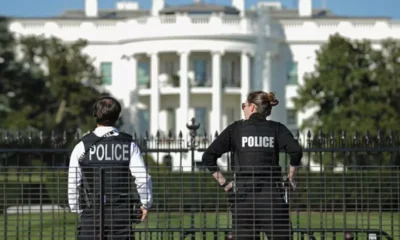

Nigerians in US to protest at White House over emergency rule in Rivers State


Human Rights Activist Omoyele Sowore Slams DSS Over Priorities


Police arrest pastor for alleged h0mosexuality in Port Harcourt
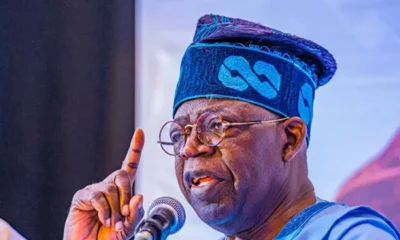

Tinubu approves N20bn fund for NASRDA
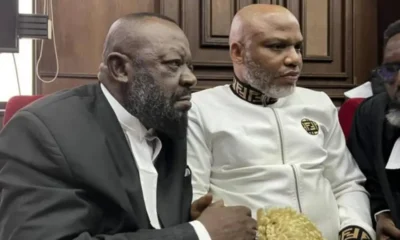

Nnamdi Kanu detained, prosecuted for making same remark as DSS DG, Ajayi – Ejimakor
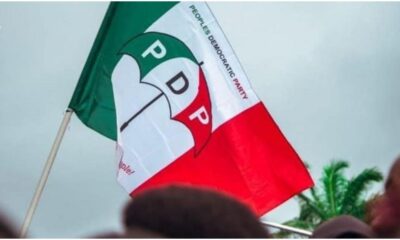

PDP chieftains in Katsina announce coalition to challenge APC in 2027
Tech
Lucid Had Another Record Quarter Thanks To Tesla Owners Who Jumped Ship
Published
1 hour agoon
April 3, 2025By
Ekwutos Blog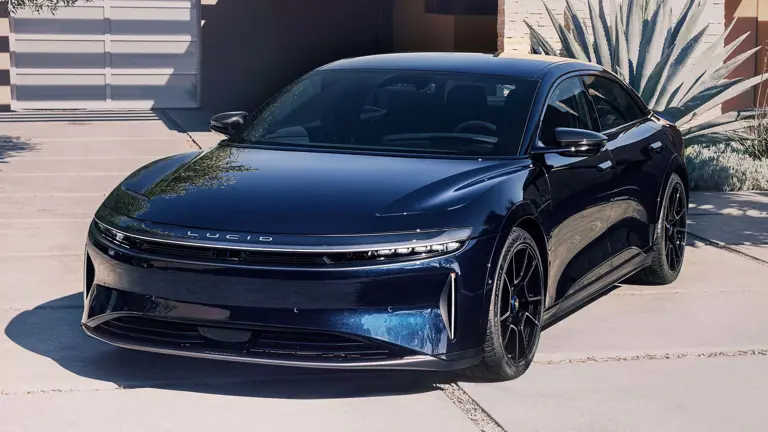
The American luxury EV maker had its fifth consecutive record quarter.
- Lucid Motors delivered 3,109 cars in the first quarter.
- That’s a 28% increase year-over-year.
- A big reason for the uptick? Tesla owners.
The Lucid Air is a phenomenal machine, albeit a very expensive one. It’s the longest-range electric vehicle on sale today, with up to 512 miles on a full charge. It’s also extremely comfortable, but it costs between $70,000 and $250,000.
Despite the high price tag, the Air just helped Lucid achieve its fifth consecutive record quarter for deliveries. Thanks in no small part to Tesla owners ditching their EVs for other battery-powered cars, Lucid delivered 3,109 units in the first quarter of this year–an impressive increase of 28% over last year.
“Tesla owners always have been a source of customers for us,” said Lucid’s Interim CEO Marc Winterhoff during a Fox Business interview last week. “We saw a dramatic uptick in the last two months. Right now, 50% of all the orders that we have are from Tesla owners.”
More Lucid Stories
Compared to last year’s fourth quarter, Lucid delivered just 10 more vehicles, but a record is still a record. When it comes to manufacturing, the California-based startup built 2,213 cars at its facility in Casa Grande, Arizona, with an additional 600 units in transit to Saudi Arabia, where they will be assembled at the company’s AMP-2 facility. Compared to Q1 2024, Lucid built 28% more cars in the first quarter of this year.
Deliveries of the new Gravity SUV are yet to begin, with the first demo units scheduled to be finalized by the end of April. As a reminder, Lucid also built a handful of Gravity SUVs late last year, but that was a limited run intended for employees and company friends. In other words, although Lucid doesn’t split the delivery numbers for its two models, all the cars delivered in Q1 were likely Air sedans.
With the Gravity, Lucid is broadening its appeal to a wider audience that may not be so convinced about a luxury electric sedan. “More than 75% of our Gravity orders are from people who don’t own a Lucid,” said Winterhoff. That said, don’t expect Lucid’s first SUV to be affordable. The Gravity Grand Touring starts at $94,900–this gets you up to 450 miles of range on a full charge and seating for up to seven adults. A cheaper Touring trin, which will start from $79,900, will go on sale in late 2025.
Lucid Motors Deliveries
| Period | Units Delivered |
| Q4 2022 | 1,932 |
| Q1 2023 | 1,406 |
| Q2 2023 | 1,404 |
| Q3 2023 | 1,457 |
| Q4 2023 | 1,734 |
| Q1 2024 | 1,967 |
| Q2 2024 | 2,394 |
| Q3 2024 | 2,781 |
| Q4 2024 | 3,099 |
| Q1 2025 | 3,109 |
Tech
Ford’s EV, Hybrid Sales Surge In Q1 Ahead Of Tariff Chaos
Published
2 hours agoon
April 3, 2025By
Ekwutos Blog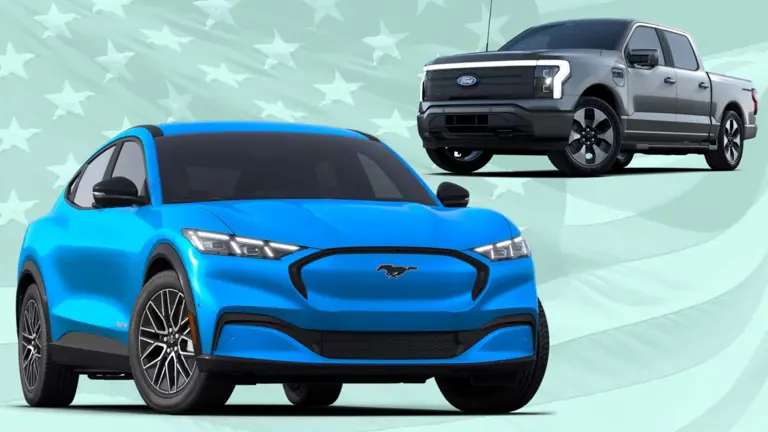
It was a record start to the year for electrified vehicles, mainly led by the Mustang Mach-E. But that could get pricier soon.
- Ford sold 73,623 electrified models in the U.S. in the first quarter, a 26% year-over-year growth.
- It was a record start to the year for hybrids, up 33% while Ford’s EVs were up 12%, mainly led by the Mustang Mach-E.
- Deliveries of the 2025 Mustang Mach-E, with improved range and more features, is imminent. But it could cost substantially more with President Trump’s 25% tariffs.
Ford sold more than half a million vehicles in the U.S. across powertrain types in the first quarter of this year.
While its overall sales sank marginally, electrified vehicles grew 26% year-over-year. Hybrids, plug-in hybrids and fully electric models now together account for 15% of Ford’s overall sales, a 3% jump over last year.
The Dearborn automaker sold 501,291 units in the first quarter, a 1.3% year-over-year drop. Gas-powered vehicles accounted for 427,668 units (85%) of the total sales, whereas fully electric models made up 22,550 units (4.4%) and hybrids totaled 51,073 units (10.1%).
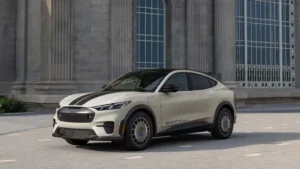
2025 Mustang Mach-E Rally_04
The Mustang Mach-E outsold the gas-powered Mustang again and every single Lincoln model on sale. Ford sold 11,607 Mach-Es, a 21% increase year-over-year. By comparison, buyers drove home only 9,377 combustion-engined Mustangs, a sharp 31.6% drop.
Sales of the E-Transit electric van increased nearly 30% to 3,756 units. However, the F-150 Lightningdid not perform as well, even though the overall F-Series trucks grew by 24.5%. Only 7,187 Lightnings found homes so far this year, a 7.1% drop.
By comparison, sales of the Chevy Silverado EVgrew 125% to 2,383 units. General Motors also just launched cheaper versions of the 2026 Sierra EV, which has the potential to put the automaker at the forefront of the electric truck race in the coming months.
However, Ford’s momentum with its electrified models risks stalling as President Trump’s 25% tariffs on imported cars and auto parts went into effect on Wednesday. While most Ford cars are assembled in the U.S., all of them get over half of their parts content from overseas—mostly Mexico—according to the National Highway Traffic Safety Administration.

2025 Ford F-150 Lightning with the
A whopping 78% of the Mustang Mach-E’s parts are sourced from Mexico and the crossover is also assembled there. Even the hugely popular Bronco Sport and the Maverick are assembled across America’s southern border.
Unless the president provides American automakers with some tariff relief or trade concessions, their momentum risks getting wiped out, at least in the short term.
Have a tip? Contact the author: suvrat.kothari@insideevs.com
Related Stories
Tech
Children are turning to ChatGPT over their PARENTS for life advice
Published
6 hours agoon
April 3, 2025By
Ekwutos Blog
Children are increasingly turning to online chatbots instead of their parents for answers to life’s biggest questions, the Children’s Commissioner has warned.
Dame Rachel de Souza will say in a speech today that the ‘apathy’ of many parents is causing a ‘crisis in childhood’ that is leading to many children feeling ‘disconnected’.
The Children’s Commissioner will say that artificial intelligence such as Chat GPT could end up filling knowledge gaps for children unless parents can show they will respond quicker than online chatbots.
Her comments come amid a national conversation about how the internet and social media are affecting children, which has been prompted by the hit Netflix drama Adolescence.
Today Dame Rachel will address the inaugural Festival Of Childhood alongside Education Secretary Bridget Phillipson, where she is expected to say that children just ‘want to be listened to’.

Dame Rachel de Souza, the Children’s Commissioner for England, has warned that the ‘apathy’ of many parents is causing a ‘crisis in childhood’ that is leading to many children feeling ‘disconnected’
She will warn that childhood must not be conflated with adulthood ‘because to do so abdicates us of our responsibility to making sure every child has all the things they should always have, and no child experiences the things they never should’.
Dame Rachel will say: ‘If we want children to experience the vivid technicolour of life, the joy of childhood, the innocence of youth, we have to prove that we will respond more quickly to them than Chat GPT.’
She will add: ‘Some of these foundations of childhood are cracking. A different version of childhood is playing out – one that we are struggling to be honest about. A crisis developing in childhood.
‘There is a risk of inaction, of apathy – and the antidote to this is listening. Connecting. That is why we must listen to children, to engage them on the decisions about their lives.’
The Children’s Commissioner has also carried out a new survey using her statutory powers to obtain responses from around 19,000 schools and colleges, representing almost 90 per cent of schools in England.

Dame Rachel de Souza has warned that children are increasingly turning to online chatbots instead of their parents for answers to life’s biggest questions (file photo)
The research has found that more than half – 55 per cent – of schools are worried about the online safety of their children.
The survey also found that 71 per cent of schools are concerned about children’s access to adolescent mental health services, while 46 per cent are worried about the impact of poverty on children.
Dame Rachel is also expected to set out her focus for the next 12 months, which will include looking at children’s trust in the police, harms cause by AI ‘deepfake’ technology, and the use of mobile phones in schools.
Education Secretary Bridget Phillipson said she pledged, upon entering office, that this would be a ‘child-centred government’.
She added: ‘This is exactly what we are delivering: better life chances for every child, wherever they live and whatever their background, putting their best interests at the heart of everything we do.’

I want to register my Busin£ss with CAC (c0porate affairs c0mmission) Atanda, but i don’t know if I should R£gister as a Busin£ss name or as a Limited Liability C0mpany Atanda pls, can you guide me and advice me on the best option to choose I am into Dry Cleaning Busin£ss

Imo State Government bans all forms of task force in the state

Security: Abia govt to keep close watch on traditional rulers, confirms kidnap victim’s release
Trending

 Trending5 months ago
Trending5 months agoNYA demands release of ‘abducted’ Imo chairman, preaches good governance
- Business5 months ago
US court acquits Air Peace boss, slams Mayfield $4000 fine

 Politics5 months ago
Politics5 months agoMexico’s new president causes concern just weeks before the US elections
- Entertainment5 months ago
Bobrisky transferred from Immigration to FCID, spends night behind bars
- Entertainment5 months ago
Bobrisky falls ill in police custody, rushed to hospital

 Politics5 months ago
Politics5 months agoRussia bans imports of agro-products from Kazakhstan after refusal to join BRICS

 Politics5 months ago
Politics5 months agoPutin invites 20 world leaders
- Politics1 year ago
Nigerian Senate passes Bill seeking the establishment of the South East Development Commission.
